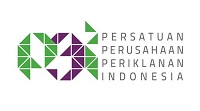Tweeting democracy: X and political participation of Indonesian youth
Abstract
The rise of social media has undeniably improved engagement, politics, and communication. The emergence of X has revolutionized political conversations and strengthened the political engagement of both citizens and politicians. It is crucial that we conduct a thorough examination of the importance of this phenomenon, particularly in the Indonesian context. This study aims to delve into the role of X in shaping political participation among Indonesian youth. The study was conducted among three hundred male and female students from five prestigious universities in West Java, Indonesia: UNPAD, ITB, UPI, UIN, IPB, and Telkom University. For data collection, the researcher used a quantitative method in which closed-ended questionnaires were distributed. In addition, the researcher also conducted interviews with randomly selected respondents to ask them about their experiences with X. This study shows that X greatly influences young people and plays an important role in teaching political awareness. X impacts young people by helping them gain knowledge about fundamental political rights. The results also show that messages on X influence respondents’ political orientation and help them decide who to vote for in elections. In addition, the study shows that X has become an excellent source to connect political leaders with their constituents. By analyzing the approaches of political leaders and young people behind the use of X, this study contributes to future research on political influence on social media, especially X.
Keywords
Full Text:
PDFReferences
Abbas, M. H., Jiang, Y., Miao, M., & Naqvi, M. H. (2020). The effect of social influence, trust, and entertainment value on social media use: Evidence from Pakistan. Cogent Business & Management, 7(1), 1723825. https://doi.org/10.1080/23311975.2020.1723825
Ameliya, T. M. (2023). KPU RI: 107 juta pemilih muda dominasi Pemilu 2024. Antara News.
Biswas, A., Ingle, N., & Roy, M. (2014). Influence of social media on voting behavior. Journal of Power, Politics & Governance, 2(2), 127–155. https://jppg.thebrpi.org/vol-2-no-2-june-2014-abstract-7-jppg#j_menu
Bruns, A., & Burgess, J. (2011). # ausvotes: How Twitter covered the 2010 Australian federal election. Communication, Politics & Culture, 44(2), 37–56. https://eprints.qut.edu.au/47816/
Duncombe, C. (2019). The politics of Twitter: Emotions and the power of social media. International Political Sociology, 13(4), 409–429.https://doi.org/10.1093/ips/olz013
Engström, R. (2020). (De) legitimizing Scottish independence on Twitter: A multimodal comparison of the main official campaigns. Discourse & Communication, 14(6), 580–599. https://doi.org/10.1177/1750481320939703
Esteve Del Valle, M., Broersma, M., & Ponsioen, A. (2022). Political interaction beyond party lines: Communication ties and party polarization in parliamentary Twitter networks. Social Science Computer Review, 40(3), 736–755. https://doi.org/10.1177/0894439320987569
Fountaine, S., Ross, K., & Comrie, M. (2019). Across the great divide: Gender, Twitter, and elections in New Zealand and the United Kingdom. Communication Research and Practice, 5(3), 226–240. https://doi.org/10.1080/22041451.2018.1558774
Garrett, R. K. (2019). Social media’s contribution to political misperceptions in U.S. Presidential elections. PLOS ONE, 14(3), 1-16. https://doi.org/10.1371/journal.pone.0213500
Gu, Y., Chen, T., Sun, Y., & Wang, B. (2017). Ideology detection for Twitter users via link analysis. In Social, Cultural, and Behavioral Modeling: 10th International Conference, SBP-BRiMS 2017, Washington, DC, USA, July 5-8, 2017, Proceedings 10 (262–268). Springer. https://doi.org/10.1007/978-3-319-60240-0_32
Jaidka, K., Zhou, A., & Lelkes, Y. (2019). Brevity is the soul of Twitter: The constraint affordance and political discussion. Journal of Communication, 69(4), 345–372. https://doi.org/10.1093/joc/jqz023
Jenkins, P. (2010). Jesus wars: How four patriarchs, three queens, and two emperors decided what Christians would believe for the next 1500 years. HarperOne.
Jenzen, O., Erhart, I., Eslen-Ziya, H., Korkut, U., & McGarry, A. (2021). The symbol of social media in contemporary protest: Twitter and the Gezi Park movement. Convergence: The International Journal of Research into New Media Technologies, 27(2), 414–437. https://doi.org/10.1177/1354856520933747
Kalkamanova, A. (2020). Social media as the platform for political mobilization: A case study of Kazakhstan. Central and Eastern European EDem and EGov Days, 338, 431–442. https://doi.org/10.24989/ocg.338.34
Kizgin, H., Jamal, A., Rana, N., Dwivedi, Y., & Weerakkody, V. (2019). The impact of social networking sites on socialization and political engagement: Role of acculturation. Technological Forecasting and Social Change, 145, 503–512. https://doi.org/10.1016/j.techfore.2018.09.010
Knoll, J., Matthes, J., & Heiss, R. (2020). The social media political participation model: A goal systems theory perspective. Convergence: The International Journal of Research into New Media Technologies, 26(1), 135–156. https://doi.org/10.1177/1354856517750366
Kušen, E., & Strembeck, M. (2018). Politics, sentiments, and misinformation: An analysis of the Twitter discussion on the 2016 Austrian presidential elections. Online Social Networks and Media, 5, 37–50. https://doi.org/10.1016/j.osnem.2017.12.002
M. Otala, J., Kurtic, G., Grasso, I., Liu, Y., Matthews, J., & Madraki, G. (2021). Political polarization and platform migration. Companion Proceedings of the Web Conference 2021, 224–231. New York, NY, USA: ACM. https://doi.org/10.1145/3442442.3452305
Marchal, N., Kollanyi, B., Neudert, L.-M., Au, H., & Howard, P. N. (2020). Junk news & information sharing during the 2019 UK general election. ArXiv Preprint ArXiv:2002.12069.
Martinsson, L., & Ericson, M. (2022). ‘Fight pandemics with protective masks or gender?’ Emerging collective identities and anti-gender movements on Twitter during the COVID-19 crisis in Sweden. Feminist Media Studies, 23(5), 1–17. https://doi.org/10.1080/14680777.2021.2009898
Moldovan, R. (2020). The social media revolution that failed: Lessons from the Arab spring. Redefining Community in Intercultural Context, 9(1), 257–269. https://www.afahc.ro/ro/rcic/2020/rcic%2720/volum_2020/257-269%20Moldovan.pdf
Pradana, Y. S., Mirawati, I., & Octavianti, M. (2023). Golkar party’s utilization of TikTok for the 2024 election campaign. Jurnal Manajemen Komunikasi, 7(2), 255. https://doi.org/10.24198/jmk.v7i2.44605
Putri, N. E., Hakim, N., & Yamin, M. (2016). Ecologicall footprint and biocapacity analysis for flooding prevention in South Sumatera. Jurnal Mimbar, 32(1), 58–64.https://doi.org/10.29313/mimbar.v32i1.1729
Rahmawan, D., Mahameruaji, J. N., & Janitra, P. A. (2020). Strategi aktivisme digital di Indonesia: aksesibilitas, visibilitas, popularitas dan ekosistem aktivisme. Jurnal Manajemen Komunikasi, 4(2), 123. https://doi.org/10.24198/jmk.v4i2.26522
Rossi, S., Rossi, M., Upreti, B., & Liu, Y. (2020). Detecting political bots on Twitter during the 2019 finnish parliamentary election. https://doi.org/10.24251/HICSS.2020.298
Russell, A. (2021). Tweeting is leading. Oxford University Press. https://doi.org/10.1093/oso/9780197582268.001.0001
Samsonova, T. N., & Naumova, E. S. (2020). The role of mass media in political socialization of modern Russian youth. Moscow State University Bulletin. Series 18. Sociology and Political Science, 25(4), 247–264. https://doi.org/10.24290/1029-3736-2019-25-4-247-264
Sugiyono. (2018). Metodologi penelitian kuantitatif, kualitatif dan r & d (Edisi 10). Bandung: Alfabeta.
Sutan, A. J., Nurmandi, A., Mutiarin, D., & Salahudin, S. (2021). Using social media as tools of social movement and social protest in omnibus law of job creation bill policy-making process in Indonesia. Advances in Digital Science: ICADS 2021, 261–274. https://doi.org/10.1007/978-3-030-71782-7_24
Sutoyo, E., & Almaarif, A. (2020). Twitter sentiment analysis of the relocation of Indonesia’s capital city. Bulletin of Electrical Engineering and Informatics, 9(4), 1620–1630. https://doi.org/10.11591/eei.v9i4.2352
Tan, N. (2020). Digital learning and extending electoral authoritarianism in Singapore. Democratization, 27(6), 1073–1091. https://doi.org/10.1080/13510347.2020.1770731
We Are Social. (2023). Internet users in Indonesia to hit 212 million by 2023. We Are Social.
Wiles, S., Morris, T., & Priestley, R. (2023). Going viral: A science communication collaboration in the era of COVID-19 and social media. https://doi.org/https://doi.org/10.21203/rs.3.rs-2235694/v1
Wolfsfeld, G. (2022). Making sense of media and politics. New York: Routledge. https://doi.org/10.4324/9781003176657
DOI: https://doi.org/10.24198/jmk.v9i1.49376
Refbacks
- There are currently no refbacks.
Copyright (c) 2024 The Author(s)

This work is licensed under a Creative Commons Attribution-NonCommercial-ShareAlike 4.0 International License.
Jurnal Manajemen Komunikasi Indexed by:
Jurnal Manajemen Komunikasi
Fakultas Ilmu Komunikasi, Universitas Padjadjaran
Postgraduate Building, 2nd Floor, Faculty of Communication Sciences, Padjadjaran University
Jl. Ir. Soekarno Km. 21, Jatinangor, West Java 45363, Indonesia
Phone: +6288229381552 (WhatsApp Only)
Phone: +62227796954
Fax: +62227794122
Email: jurnal.manajemen.komunikasi@unpad.ac.id

This work is licensed under a Creative Commons Attribution-NonCommercial-ShareAlike 4.0 International License.
Jurnal Manajemen Komunikasi Supervised by:












21.png)

